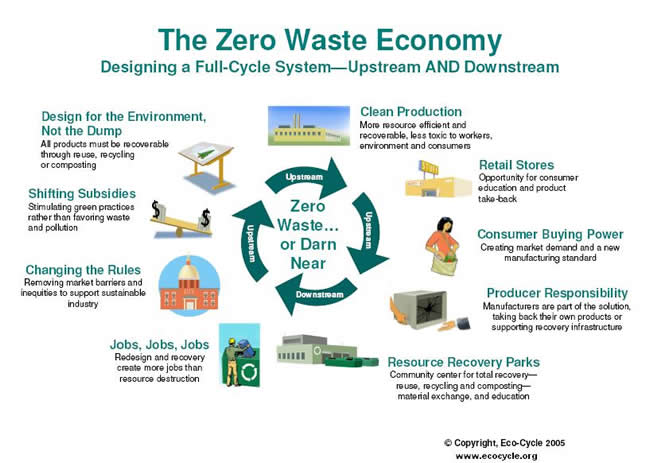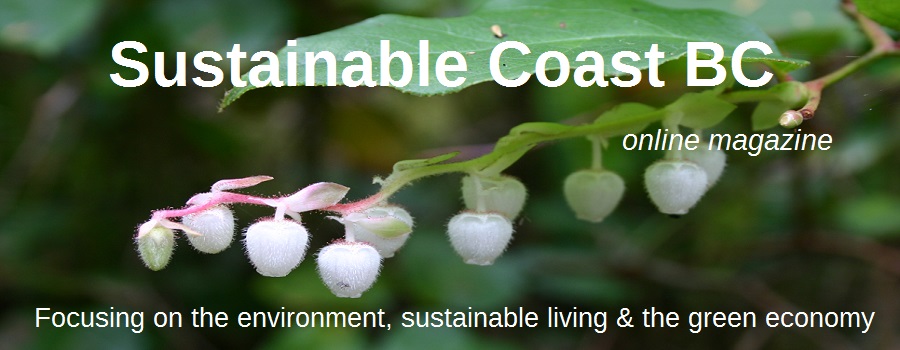Transitioning
- Details
- Written by Beverly Saunders Beverly Saunders
- Category: Current Users Current Users
- Published: 28 February 2012 28 February 2012
Zero Waste is a theory that teaches how to redesign both products and the processes that produce them so as to design discard OUT of a product and design reuse IN. Without this fundamental focus on new and innovative designs. there is no possibility whatsoever of achieving any serious reuse. Just as you cannot make a silk purse out of a pig's ear (the ear is designed by nature to help a pig hear, not to contain your car keys) you cannot reuse appliances, electronics, packaging, containers, construction modules or anything else unless you design for that reuse in advance, making use of all the unnoticed parameters possessed by every product which either cause it to be discarded early or facilitate its continued or perpetual reuse.

Most people have never given a moment's thought to these matters and have nothing to fall back on, when hearing such claims for the first time, except what they have been trained to expect in their commercial lives. They are used to devices that fall apart as soon as the warranty expires and they expect that this is the necessary way that things must work. They are used to throwing away anything they don't want and having someone else, it doesn't matter who, pretend to take care of it for them. This is the system of institutionalized garbage creation, backed up by design for early obsolescence, that citizens unfortunately now expect. It doesn't have to be that way, but almost all citizens assume it does.
All that recycling accomplishes is to institutionalize the worst aspects of waste, design for early discard, but with a greenwashing patina that should fool no one but seems to fool everyone.
Lately, the definition of who will take care of it has changed and become more subtle. Instead of a pure garbage can, they may place their faith in a recycling can. The same garbage company still handles the can, the fate of their discards is still similar in that most of it still goes into a dump, but the brass ring that the citizen thinks he has grabbed is the vision of reuse. Unfortunately, the pig's ear is no closer to becoming a silk purse. All that recycling accomplishes is to institutionalize the worst aspects of waste, design for early discard, but with a greenwashing patina that should fool no one but seems to fool everyone. Remember this: recycling is the very worst form of reuse you can imagine. Recycling is superior to nothing except outright dumping. This is an extremely low standard for any behavior and an insult to the intelligence of our designers, scientists and citizens.
Another diversion from doing the straightforward work of changing designs is called EPR. Under this, the citizen is assured that even though nothing has changed, even though the design is still the lowest possible,
Another diversion from doing the straightforward work of changing designs is called EPR. Under this, the citizen is assured that even though nothing has changed, even though the design is still the lowest possible, for early discard, somehow, a magical change will take place and the discarded goods will now go somewhere else. Without doing any hard work, or taking any responsibility for the actual system in which production, sales and usage takes place, our society will pass through the wormhole into a marvelous future. Sorry, the pig's ear is still no closer to holding your spare change!
I am not one of those citizens who just spent a few milliseconds thinking about garbage and then ran with the first, uninformed idea that popped into my mind. I started and ran a successful company that took on reuse of one form of product that the rest of society runs from - chemicals! It made no difference if they were common or unusual, toxic or benign, sometimes even radioactive. We found new uses for all of them. In naming my company Zero Waste Systems Inc. I came up with the first public use ever of the term Zero Waste. So I assert with pride that I am the inventor of Zero Waste.
Soon after I took on the task of applying the theory of Zero Waste to all of society's commodities. I soon learned that my early experience with chemicals served to instruct me in principles that applied to all products. I have put my assembled knowledge on my website at www.zerowasteinstitute.org. There you can find not only a pious invocation of Zero Waste but all of the details of how it works, how design is to be structured, what is important and what is not and a full complement of actual new designs worked out for many products. I show that designing for Zero Waste is relatively easy (because contemporary designs are so bad) even though the truly brilliant designs may be coming along later after research and experiment. In the Archives section you can find reports on some ideas that have already been applied that will save thousands of tons of electronic waste, just by acting smart, without costing a single dime. You will see that the website is a feast of Zero Waste ideas, free to the public. There is no longer any reason to thrash around with low level approaches like recycling and WTE that refuse to change a single feature of product design but rely on magical evasions of reality.
There is only one real future for a blueprint for resource utilization and reuse and that is the design principles of Zero Waste.
There is only one real future for a blueprint for resource utilization and reuse and that is the design principles of Zero Waste. The reason that such a sweeping statement is justified is that Zero Waste is not a limited, personal view of social and product relations but is merely scientific thinking applied to the theory of resources. As such, it has the sweep that science possesses in all fields to solve problems now and in the future. There is no alternative to seeking to bring the successes of experimental and theoretical science to the field of product design for perpetual reuse. You will find that it is much easier to flesh out than you might have thought possible, once you free your mind from the propaganda for wasting.
Paul Palmer PhD www.zerowasteinstitute.org
This email address is being protected from spambots. You need JavaScript enabled to view it.
